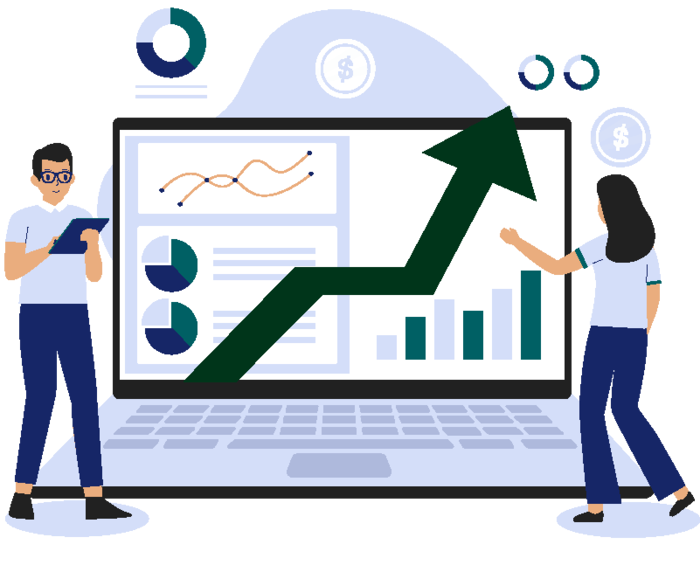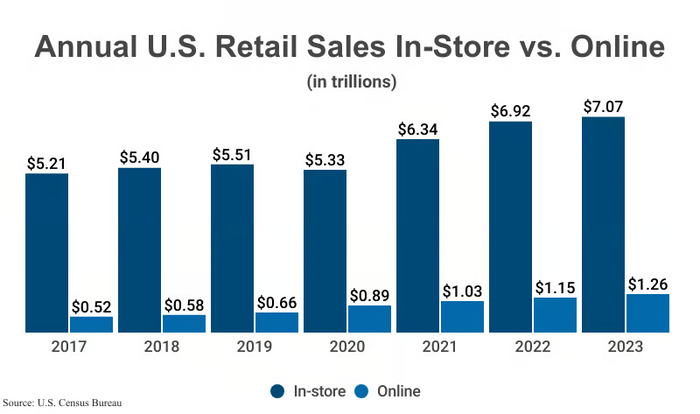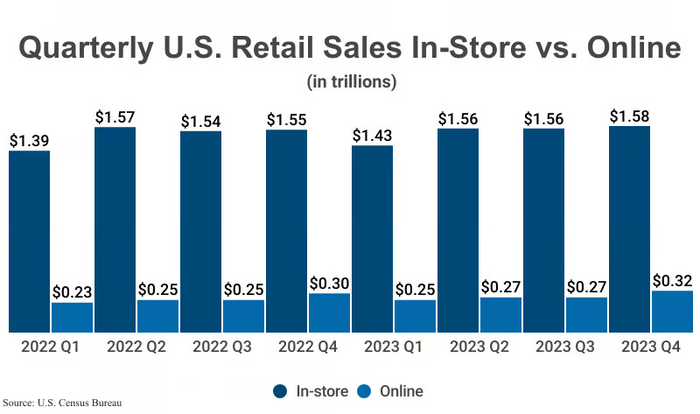Success Made Simple: Business Growth Strategy Insights Straight from the Experts
Business success doesn’t come easy, but it can be a more streamlined process with the right strategies in place.
There was once a time when one of my marketing efforts was doing more harm than good.
Strapped for time, I had an agency oversee my paid ad management.
I trusted they were skilled in their craft and knew what they were doing.
But, they didn’t.
That blind faith was causing me to drive thousands of unqualified, frustrated customers to my website.
It was only when I started to wonder why my business wasn’t growing and focused on every aspect of my marketing in quick sprints (a week or less) that I uncovered an effort that was severely impacting my business growth.
My agency was targeting the wrong keyword terms in their paid efforts.
The terms they were using had nothing to do with my business.
Customers were landing on my website only to be met with content that was irrelevant to them.
Which is why it is pertinent to always look for ways to grow your business and identify what’s holding you back.
Introduction to Business Growth Strategies
Becoming a successful business is no easy feat. In fact, nearly one in five businesses (18.4%) go under after less than a year of being open. This alarming statistic rises after two years, with 30.6% of businesses closing their doors.
Business growth strategy insights can help provide valuable techniques trusted by industry experts to help guide your business towards sustainable success.
These insights aim to assist businesses of all sizes stay profitable for the long haul. In this post, we’ll explore a wide range of growth-centric tactics such as proper website development, maximizing in-store sales, and implementing growth-minded digital marketing strategies.
By adopting these tactics, your business is better poised to navigate your way through the complexities of overcrowded market places and learn how to effectively position yourself as a leader in your respective industry.
If you’ve found your business remaining stagnant, UNmiss offers an abundance of free tools that can help take your digital marketing and SEO endeavors to the next level.
Additionally, we offer a comprehensive SEO course comprising myriad business growth strategy insights from seasoned experts.
Investing in Website Development for Growth
In today’s digital era, more consumers are looking to do business online rather than the hassle of shopping in-store. In fact, a recent study found 63% of consumers prefer to shop online, more than in-store (37%).
Gen Z, in particular, leans towards online shopping with 52% of this demographic citing it as their preferred shopping method. And 38% of them turn to Google to start their search journey.
As consumers continue to flock to online channels to find businesses, businesses must continue to focus on creating user-friendly, well-optimized websites.
A business’ website serves as its digital storefront where consumers browse, look for information, and make purchases; similar to the way they would if they were in person at a store.
If a business’ website isn’t technically sound or provides a negative user experience, consumers will look to engage with a competitor instead. This is why it’s essential for businesses to invest in website development to help boost sales and ultimately grow the brand.
Leveraging Website Development
Mohit Tater’s expertise sheds light on why growth-minded brands focus their efforts towards consistent website development.
Tater surfaces the need for a well-rounded approach for website development strategy that addresses both the front and back end of a website.
Other pertinent factors Tater recommends considering when developing a website include ensuring it is:
- Mobile-friendly
- Legible in terms of font and font size
- Easy to navigate
- A seamless process to make a purchase
- Secure browsing experience
- Simple to locate CTAs
- Leverages a mix of text, engaging visuals, audio, and video
- Visually appealing in terms of design
- Free of bottlenecks that may misguide consumers
UNmiss’s website audit tool is the perfect tool to leverage when looking for ways to improve your website. Once the tool reviews your content, it assigns a score between 1-100; the higher the score the more optimized your web page content is.
It will then generate recommendations on how you can improve your score to maximize the value of your content and create a better user experience. In addition to the website audit tool, Unmiss offers an abundance of other free tools to help you improve your website’s content and SEO.
It’s essential to continue to make updates to your website. Google consistently revises how its algorithms assess and evaluate the quality of a website, making it nearly impossible for websites to stay stagnant.
To ensure web pages aren’t negatively impacted by Google’s frequent core algorithm updates, businesses must stay attuned to the latest search ranking factors and update their websites accordingly.
Google’s standards and expectations continue to rise, and your business must be prepared to face this challenge.
Websites that don’t comply with Google’s guidelines are penalized with lower search rankings, causing a trickle down effect. Lower rankings lead to less organic traffic; less organic traffic equals fewer sales, highlighting the importance of always adhering to Google’s best practices.
The front-facing elements of a website is only one aspect of website development. It’s also important to consider what takes place behind the scenes within your content management system (CMS).
Issues can occur any time you update a plugin or your website’s theme, which is why it’s crucial to always backup your website prior to performing any updates. It’s also essential to check the website after these updates take place.
If errors are left unaddressed, negative user experiences will occur and your website becomes susceptible to external threats such as:
- Data breaches
- Data theft
- Malware
- Password breaches
- Ransomware
- Phishing attacks
These external threats impact more than just your customers, but your business as well. They can lead to lost sales and employee resources spent trying to fix these issues. It’s important for businesses to perform regular website data backups to prevent costly downtime.
Maximizing Revenue from Store Visitors
For retailers with physical store locations, maximizing in-store revenue is essential to stay afloat and ensure longevity. With the convenience of online shopping and consumers becoming increasingly selective of where they spend their free time, it’s becoming increasingly challenging to attract in-store shoppers.
However, the opportunity is still there for businesses with physical locations to survive and thrive. In-store shopping still outpaces online shopping. American consumers spent $7.071 trillion in retail stores compared to the $1.257 trillion spent online last year.
The simple fact is many consumers enjoy shopping in-person. A little less than half (45%) of consumers typically shop in brick-and-mortar stores and 72% of consumers shop in stores on a weekly basis. When forecasting retail sales in 2024, experts believe 72% will take place in brick-and-mortar stores.
Achieving business growth from in-store sales is possible with the right strategy in place. To start, businesses must have a thorough understanding of their audience.
Personalization is the way to win customers; knowing what motivates them is key to converting. This is why it’s crucial for retailers to analyze consumer behavior, looking at purchase patterns and understanding what their customers are drawn to most.
Through personalization, businesses can tailor each guest’s experience to maximize engagement. For example, a business can recommend products a customer typically purchases to prompt repeat purchases and send physical or email coupon codes to help encourage the transaction.
Additionally, when a customer feels like a brand truly understands them they feel more compelled to continue to purchase with that brand. This leads to customer loyalty and retention. It also helps improve brand perception and cost-effective word-of-mouth marketing.
Strategies for Enhancing Revenue Generation From Store Visitors
Customers have more options than ever before. Your competition might even have lower prices to attract their attention. How do you stand out from the crowd?
There are numerous ways to establish your business as the best and only choice, even if your price point is marginally higher. As Zee Aganovic, a successful serial entrepreneur shares, in-store experience is the primary way to influence purchases.
The moment a customer steps into your store, they should be met with a positive, memorable experience. Some ways to set the stage for a positive in-store experience include the following.
Aesthetically Pleasing Design
First impressions make a lasting impression. Your store’s design will be the first thing your customers notice. Is the store layout easy for the customer to navigate?
Is there an abundance of clutter or items out of place? Is the floor clean? Are your shelves tidy? All of these factors play a significant role in how consumers perceive not only your store, but your brand overall.
Offer Exceptional Customer Care
Ensure you have store employees available and ready to help customers with their needs.
Whether they need assistance locating an item or simply have a question they want answered by store personnel, your store should be staffed with enough employees to help customers however they can.
Ensure your employees mirror your store’s vision and mission. Train your staff to be able to answer frequently asked questions and ensure they know where to turn to should an issue require escalation.
Easy Checkout Process
Making a purchase with your business should be a swift, convenient endeavor that’s free of hassle. Self checkout options are a great way to expedite purchasing and eliminate the need for additional staff.
For guests that still prefer to have a human touch with making their purchases, ensure you have enough staff in-store to avoid long checkout times and customer frustration. A study found that 10% of customers will leave a checkout line if they find the wait to be too long.
The same study recommends that customers should wait to checkout for four minutes or less.
Create an Inviting Atmosphere
Consider what makes you most comfortable at home—a comfortable temperature, adequate lighting, background music that’s not too loud. Make your store feel like home by taking into consideration all the factors that influence a customer’s level of comfort.
Consider Your Omnichannel Experience
Customers should have a consistent experience with your business whether they’re shopping in-store or online.
Ensure experiences are consistent and accurate. For example, if your inventory online says you have a product in-store and a customer drives to your store only to find it’s out of stock, this not only creates resentment but also a bad guest experience.
Consulting for Business Growth
 Oftentimes an outside perspective is the best perspective. As business owners or employees, we often get too ingrained in our workplaces. We lose sight of overarching issues that could be slowing down performance or significantly impacting sales.
Oftentimes an outside perspective is the best perspective. As business owners or employees, we often get too ingrained in our workplaces. We lose sight of overarching issues that could be slowing down performance or significantly impacting sales.
Taking a step back and leaning on the help of a consultant can help uncover challenges impacting business growth. Consultants or consulting firms’ sole purpose is to help businesses identify pitfalls and offer solutions to rectify them.
They come into your organization unbiased and with a unique perspective, ignoring the inner workings and politics that may exist within the business. Their skillset helps businesses pinpoint blind spots and overcome existing obstacles that may be hindering their growth.
Consultant’s growth strategies aren’t a one-size-fits all approach, but rather tailored to the organization’s diverse needs. This tailored approach ensures the business is treated as an individual entity that comes with its own distinctive challenges.
There are numerous instances when and where businesses might benefit from consulting. A few business growth strategy insights a consultant might share include how to:
- Effectively get through periods of transition (such as leadership changes)
- Ensure a worthwhile new product launch and subsequent market exposure
- Grow financially by looking for areas of opportunity and inefficiency
- Navigate complex challenges
- Outshine the competition by performing a comprehensive market analysis
- Identify areas for growth such as missing products or technology
- Determine which demographic to target
All of the previously mentioned can have a significant impact on business growth that consultants have the training and expertise to successfully navigate to guide businesses towards profitability.
Improving the Path Towards Achieving Operational Excellence
Well-functioning organizations are rare, often plagued by the trials and tribulations emerging and growing businesses face.
Even the most savvy leadership teams can’t conquer every issue stifling business expansion. That’s where an expert consulting firm comes in.
They offer strategies to help solve organization’s top challenges and deploy effective solutions. Here are a few ways consultants can improve the path towards achieving operational excellence.
Stronger Planning
Planning is often one of the most challenging aspects in business. However, it’s also the most important stage as this helps to inform goals, determine how you’ll reach those goals, and how you’ll measure them. Consultants help businesses become more prescriptive and strategic in the planning phase.
Restructuring
When layoffs occur or leadership positions are left, strategic restructuring can make or break a business. A consultant can help navigate who reports to who, who steps into what role, and how restructuring should look across departments.
Alignment in roles and responsibilities can help streamline processes, mitigate stress, and improve employee satisfaction, all of which can lead to more growth.
Streamline Process
As Davis Nguyen shares, outdated, long-standing processes may be holding back your business from achieving more. Consultants can step in to identify areas where you can optimize processes or assess for any gaps in technology that could help improve the quality of your work.
Handling Changes
Change can be difficult and detrimental to employee satisfaction. It’s crucial to have a plan in place whenever a significant organizational change occurs. Consultants can help to ensure your business has proper communication in place as well as a post-communication plan to handle negative outcomes.
Risk Assessment
The risk isn’t always worth the reward. Consultants can help your business determine what’s worth tackling and what to avoid. This helps to protect a business’ reputation and establish contingency plans for worst case scenarios.
Research
Growth-minded businesses keep a pulse on current market conditions and how they’re competitors are doing. Consultants can step in to help with this work, as well as how a business analyzes its own performance, such as the key metrics they should be monitoring.
Build Better Leaders
Leadership impacts the entire organization. Strong and admirable leadership can shape the success of a business. Consultants can help provide leadership coaching or implement programs to train employees to become top-notch, trustworthy leaders who are capable of running a successful business.
Accelerating Growth with Strategy Sprints
Businesses struggle with building pipelines slightly more than needed and having a mechanism to close people who are in the pipeline. How do you fill the pipeline and qualify people out of the pipeline?
How can you motivate people in the pipeline to take action? These two key issues many businesses are actively trying to solve can be addressed with strategy sprints, a concept coined by Simon Severino.
There are hundreds of decisions for a business to consider. Sales, marketing, operations, engineering, and more all have a direct impact on a business’ bottom line.
With numerous moving pieces working behind the scenes, it can be difficult to discern what is causing the bottleneck. That’s why Severino recommends working in strategy sprints to help identify what’s currently working and then find ways to simplify or automate these efforts.
What is a Strategy Sprint?
Strategy sprints allow businesses to identify challenges thwarting their sales through a structured and data-back approach. By evaluating and testing each of your sales tactics in short springs, you can more easily see what’s working and what isn’t.
For example, if you’re a small business with a lean team, it can be challenging to keep an eye on what efforts are performing well.
You may have a paid campaign running behind the scenes that hasn’t been managed in months that may be driving the wrong traffic to your website.
By taking a week to place a heavier focus on your paid efforts you may realize Google’s serving keywords that don’t match user intent, suggesting keywords that don’t align with your content, or adding superfluous keywords that aren’t of value to your business.
Without checking in on this effort, you could be spending thousands of dollars a month for very little return or unqualified search traffic.
This quick assessment could save a business substantially, a key benefit of strategy sprints. Strategy sprints allow for quick learnings, enabling businesses to quickly determine what’s delivering the best results.
Rather than spending ample time on a single effort, businesses can get right to the point to maximize time, efficiency, and performance.
Strategy sprints also encourage collaboration. Cross-department teams come together to identify how to work better together to achieve the common goal: growing the business.
Through this process, teams may uncover tools and technology that are working well for one department that they can implement to streamline their own tasks.
Collaboration enables teams to maximize their work, align on goals, and forge stronger relationships with colleagues, leading to better business outcomes.
Conclusion
Business success doesn’t come easy, but it can be a more streamlined process with the right strategies in place. For businesses seeking growth, leveraging any or all of the above strategies can uncover a clearer path towards long-term, sustainable success.
Business growth strategy insights shared by experts who’ve experienced and overcome their own challenges can help you identify areas where your own business may be struggling.




